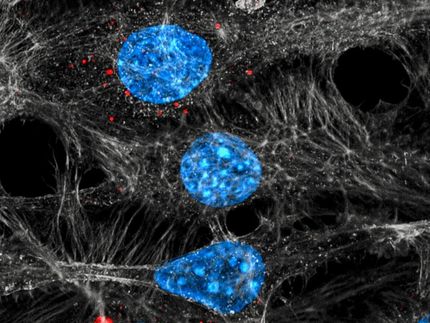Bavarian Nordic updates on Phase I/II studies with breast cancer vaccine
Bavarian Nordic provided updated data from its clinical studies with its breast cancer vaccine, MVA-BN®-HER2, in development as therapy of metastatic breast cancer patients whose tumours over-express HER2. The study met its primary endpoint with regards to safety and by showing an immune response. Evidence of vaccine-induced anti-HER2 immune response was detected in approximately 70% of evaluated patients.
Clinically, the vaccine was well tolerated with no treatment-related severe adverse events. Currently, the disease has not progressed in 15 out of the 30 patients after a 6 month period. Also, in the group where vaccine was combined with chemotherapy, one complete response and one partial response were observed. These results confirm the positive interim data reported in 2008 and show that MVA-BN®-based, HER2 directed vaccination is a biologically active treatment for patients with HER2 positive breast cancer; however the overall immune response was moderate.
Additionally Bavarian Nordic has completed preclinical studies with an improved version of the MVA-BN®-HER2 vaccine. In those studies, the new vaccine induced up to 20-fold higher T-cell immune response as compared to the original version. Furthermore, it proved to be efficacious in additional tumour immunotherapy models in HER2 transgenic mice. The immunological situation regarding HER2 in those mice strongly resembles the situation in humans.
Based on those encouraging data from both clinical and preclinical studies Bavarian Nordic decided to advance the clinical development of MVA-BN®-HER2 in further clinical studies with the new and improved vaccine. Specifically, a new, single-site Phase I/II study in the US will be initiated by 2009 and evaluate 24 patients in both metastatic breast cancer as well as in an adjuvant therapy of breast cancer setting.
In order to strengthen Bavarian Nordic's patent portfolio in the cancer therapy field, the company has, for a minor payment, acquired from Pharmexa the families of patents that it had previously licensed.
Organizations
Other news from the department research and development

Get the life science industry in your inbox
By submitting this form you agree that LUMITOS AG will send you the newsletter(s) selected above by email. Your data will not be passed on to third parties. Your data will be stored and processed in accordance with our data protection regulations. LUMITOS may contact you by email for the purpose of advertising or market and opinion surveys. You can revoke your consent at any time without giving reasons to LUMITOS AG, Ernst-Augustin-Str. 2, 12489 Berlin, Germany or by e-mail at revoke@lumitos.com with effect for the future. In addition, each email contains a link to unsubscribe from the corresponding newsletter.






















































